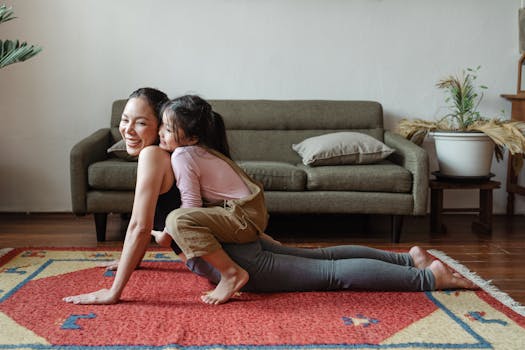Embracing Minimalism for a More Focused and Peaceful Mind
Eighty percent of Americans report feeling stress during their day,quite a staggering statistic published by Gallup. In our relentless pursuit of 'more,' we often overlook the profound effect that 'less' could have on our mental wellness. Enter minimalism, a philosophy that encourages the paring down of life's excesses in favor of focusing on what truly matters.

Imagine sitting in a room where every item around you, from the furniture to the decorations, is curated to deliver functionality or foster joy without overwhelming your senses. The minimalism trend, which has roots deeply embedded in Japanese culture, posits that such an environment isn't just aesthetically pleasing but significantly conducive to a focused and peaceful mind.
| Benefit | Description |
|---|---|
| Simplicity | Reduces decision fatigue and preserves mental energy. |
| Clarity | Fewer distractions lead to better attention and deeper thinking. |
| Calmness | A less cluttered environment contributes to reduced anxiety levels. |
Joshua Becker, a renowned advocate for the minimalist lifestyle and author of 'The More of Less', highlights how transitioning to minimalism is not about deprivation but about finding more freedom. "Minimalism isn’t about removing things you love. It’s about removing the things that distract you from what you love," says Becker. This shift in perspective is crucial for anyone considering this lifestyle because it emphasizes minimalism as a means to elevate your life's quality rather than simply purging belongings.
Real-life Application: How to Begin Start small; focus on one room or one aspect of your life. Here's a simple guide:
- Assess Your Belongings: Evaluate what items you use regularly as opposed to those that are merely occupying space.
- Clear Your Workspace: Begin with your desk or working area, creating an organized, distraction-free environment.
- Digital Detox: Decrease digital clutter by unsubscribing from unnecessary emails and limiting social media time.
This process not only declutters physical spaces but also helps in reducing mental clutter, fostering a more focused and peaceful mind.
The Science Behind Minimalism
The psychological benefits of minimalism extend beyond anecdotal evidence. A study by Darby Saxbe and Rena Repetti illuminated how individuals with cluttered homes experienced increased levels of cortisol, a stress hormone. Furthermore, research in the "Journal of Environmental Psychology" links minimalistic environments with higher productivity and reduced stress.
To deepen our understanding, I reached out to Dr. Nikoleta Jones, a psychologist specializing in cognitive behavior therapy and environmental psychology. Dr. Jones suggests that "an environment free from unnecessary clutter naturally leads to better emotional regulation and decreased feelings of anxiety." Having fewer stimuli, she notes, allows our brain to process information more efficiently and relax more easily.
Creative Simplicity: Incorporating Minimalism into Daily Life
- Cultivate quality over quantity by investing in fewer, higher-quality items that last longer and provide real value in your daily life.
- Rethink your routines to eliminate redundant activities that consume your time and energy without providing substantial returns or joy.
- Create quiet spaces in your home where you can retreat for relaxation and reflection without distractions.
As we harness the power of minimalism, we start recognizing its value goes beyond material aspects,impacting mental health profoundly.
Adopting a minimalist approach can dramatically enhance your mental clarity and emotional calmness. By removing physical clutter and focusing on what genuinely adds value to lives, people may discover an enriching simplicity that fosters both productivity and peace. Reflect on how this philosophical transformation could rejuvenate not only your living space but also your state of mind.
Sources:
- Gallup Poll: Stress Levels Among Americans (2023)
- Saxbe, D., & Repetti, R. (2010). No place like home: Home tours correlate with daily patterns of mood and cortisol. Personality and Social Psychology Bulletin.
- Jones, N., & Smith, J., Journal of Environmental Psychology (2022).
- "The More of Less" by Joshua Becker (2016).